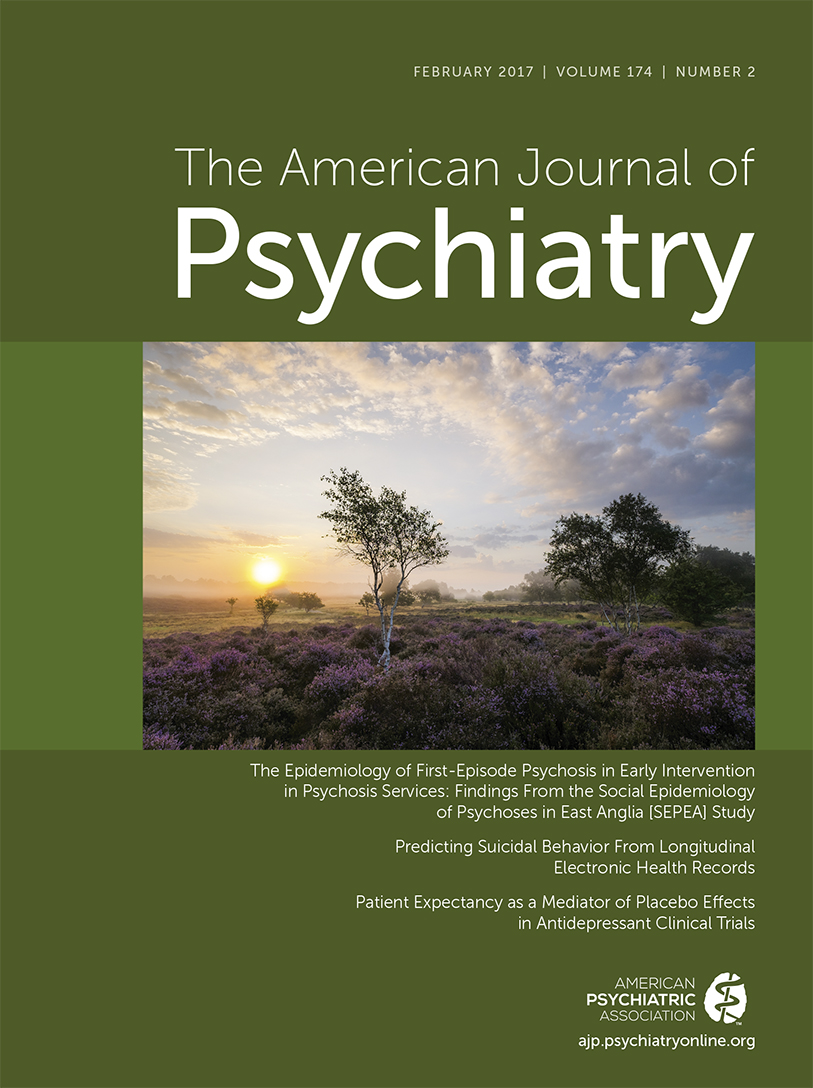Imaging Microglial Activation in Untreated First-Episode Psychosis: A PET Study With [18F]FEPPA
Abstract
Objective:
Neuroinflammation and abnormal immune responses are increasingly implicated in the pathophysiology of schizophrenia. Previous positron emission tomography (PET) studies targeting the translocator protein 18 kDa (TSPO) have been limited by high nonspecific binding of the first-generation radioligand, low-resolution scanners, small sample sizes, and psychotic patients being on antipsychotics or not being in the first episode of their illness. The present study uses the novel second-generation TSPO PET radioligand [18F]FEPPA to evaluate whether microglial activation is elevated in the dorsolateral prefrontal cortex and hippocampus of untreated patients with first-episode psychosis.
Method:
Nineteen untreated patients with first-episode psychosis (14 of them antipsychotic naive) and 20 healthy volunteers underwent a high-resolution [18F]FEPPA PET scan and MRI. Dynamic PET data were analyzed using the validated two-tissue compartment model with arterial plasma input function with total volume of distribution (VT) as outcome measure. All analyses were corrected for TSPO rs6971 polymorphism (which is implicated in differential binding affinity).
Results:
No significant differences were observed between patients and healthy volunteers in microglial activation, as indexed by [18F]FEPPA VT, in either the dorsolateral prefrontal cortex or the hippocampus. There were no significant correlations between [18F]FEPPA VT and duration of illness, clinical presentation, or neuropsychological measures after adjusting for multiple testing.
Conclusions:
The lack of significant differences in [18F]FEPPA VT between groups suggests that microglial activation is not present in first-episode psychosis.



